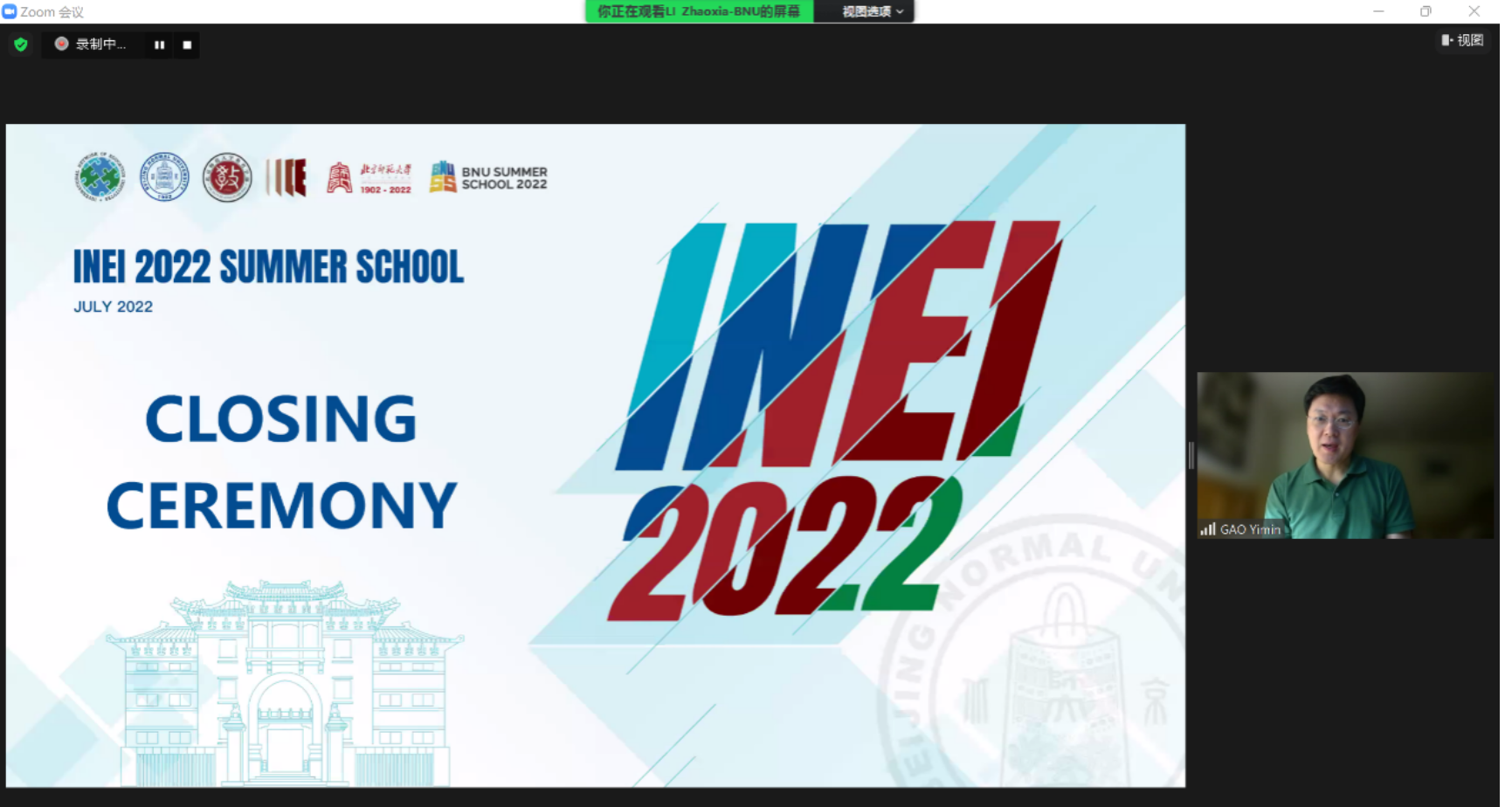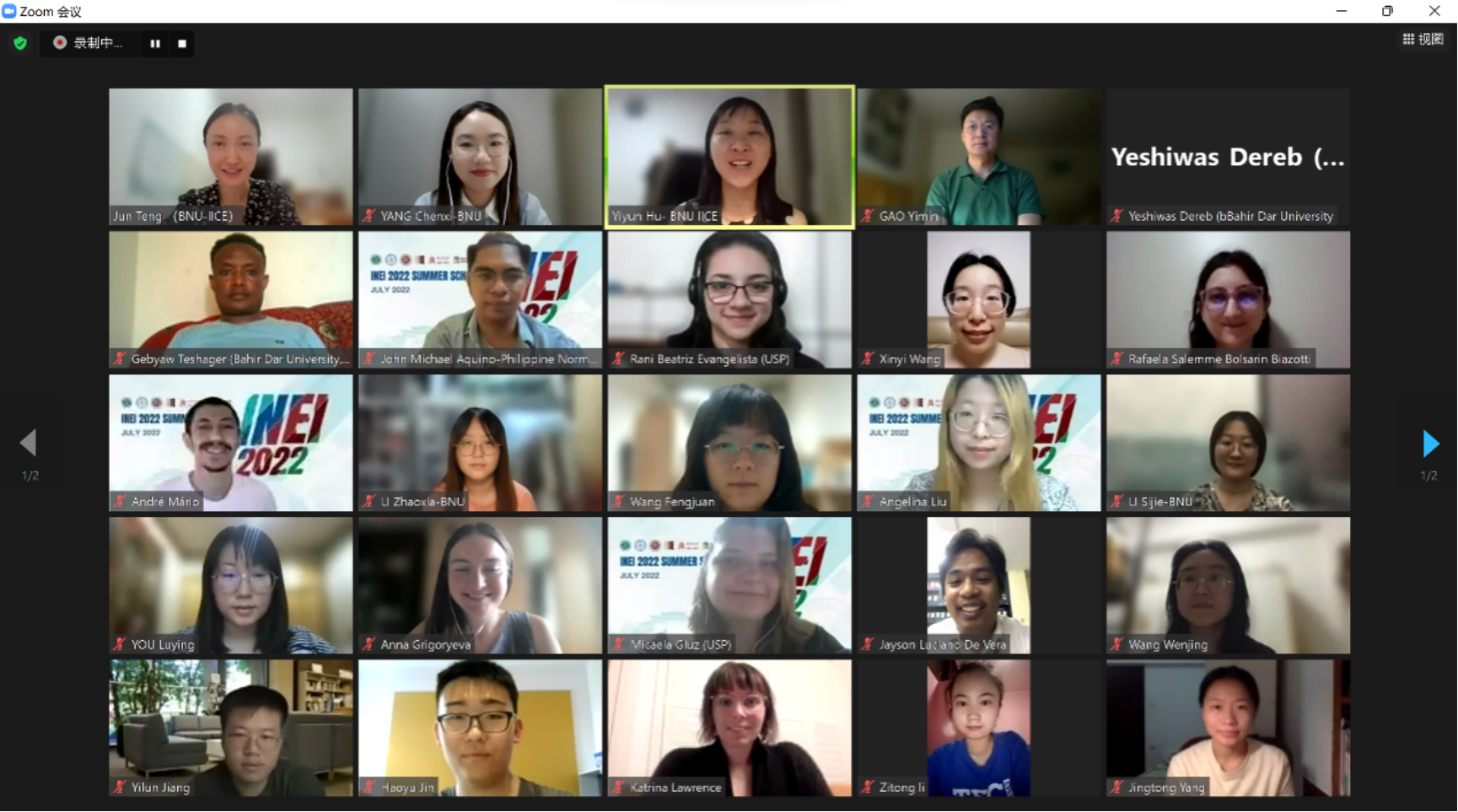The International Network of Educational Institutions (INEI) is an international academic alliance composed of 11 world-leading educational institutions, including the Faculty of Education of Beijing Normal University, the Institute of Education of University College London, and the National Institute of Education of Nanyang Technological University. Since 2017, the Faculty of Education of Beijing Normal University has successfully held four INEI summer schools, which have become a platform for academic exchanges and learning between teachers and students of the Alliance. On July 11-13, 2022, the International Alliance of Education Institutes (INEI) 2022 Summer School, hosted by the Faculty of Education of Beijing Normal University and undertaken by the Institute of International and Comparative Education, was successfully held online. This alliance summer school is also one of the Beijing Normal University's "Jingshi Global Summer School" series. The theme is "Global Governance of Education: Co-construction, Co-governance and Sharing", and many experts from home and abroad have been invited to give lectures.
At 2:00 pm on July 11, 2022, the International Alliance of Education Institutes (INEI) 2022 Summer School opened. Professor Zhu Xudong, head of the Faculty of Education, Professor Liu Baocun, Dean of the Institute of International and Comparative Education, Professor Teng Jun, Deputy Dean of the Institute of International and Comparative Education, Dr. Liu Jing, Director of the Office of International Exchange and Cooperation, and 43 students from 11 countries and regions around the world participated in the opening ceremony.
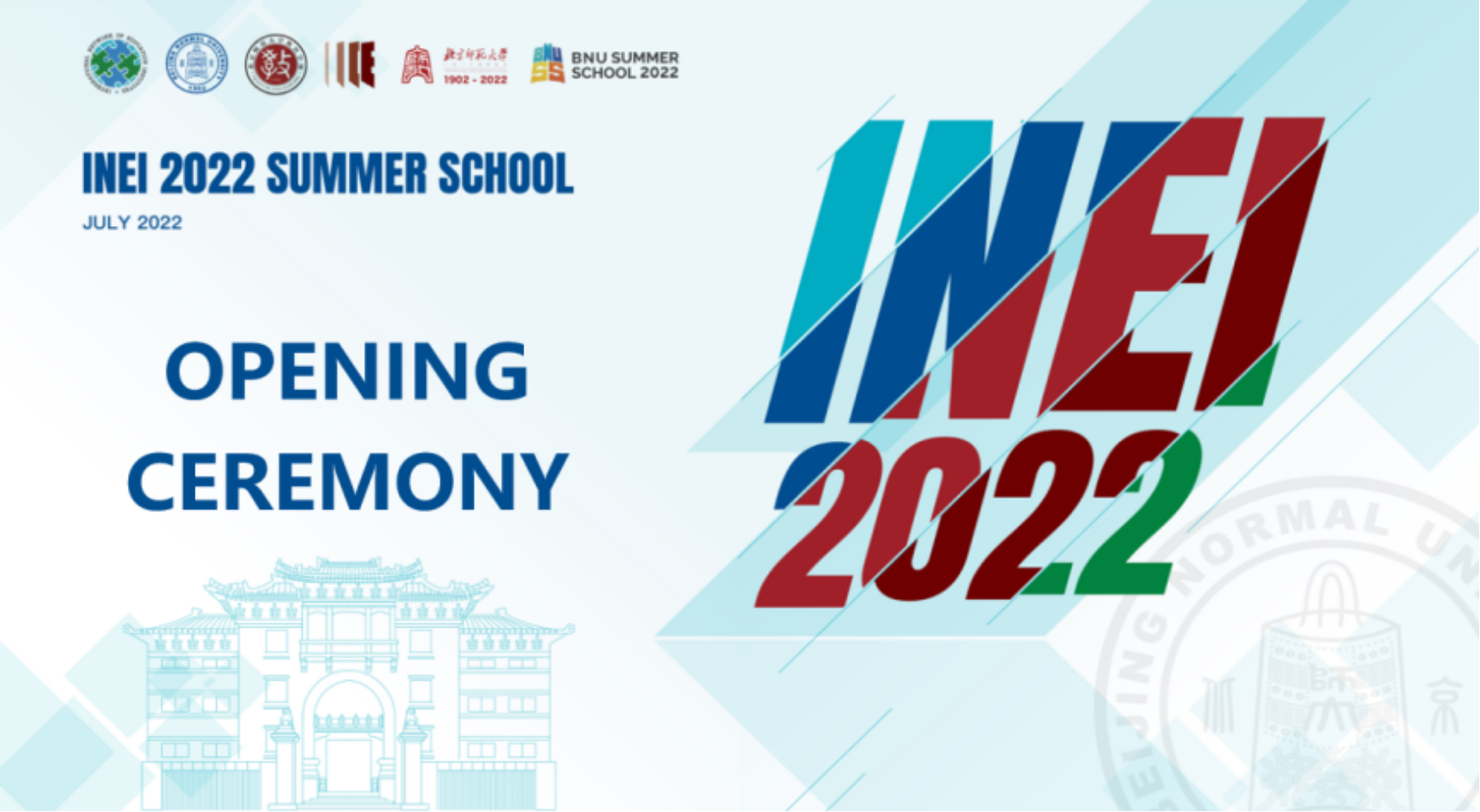
The opening ceremony was presided over by IICE Professor Teng Jun. She welcomed students from all over the world and explained that this year's summer school was held online due to the epidemic. She hoped that this summer school would provide a platform for young researchers from alliance institutions to exchange and learn as in previous years.
In opening speech, Professor Zhu Xudong introduced the consensus of the International Network of Educational Institutions (INEI)—the sharing of experiences and achievements among educators will promote the development of international education. In the past few years, more than 130 experts and young students from 13 universities in 10 countries and regions have participated in the summer school organized by the Faculty of Education, Beijing Normal University. It is a powerful catalyst for changes in the field of international education. And the Faculty of Education of Beijing Normal University, as a top institution, also plays an important role in educational research and decision-making in China. Since the outbreak of the epidemic, unilateralism, protectionism and populism have been on the rise, and global educational governance also faces new challenges. This year's summer school program took this as the theme, which is of great significance. Finally, he said that 2022 is the 120th anniversary of Beijing Normal University, and this year's INEI summer school is also one of the celebrations of the 120th anniversary.
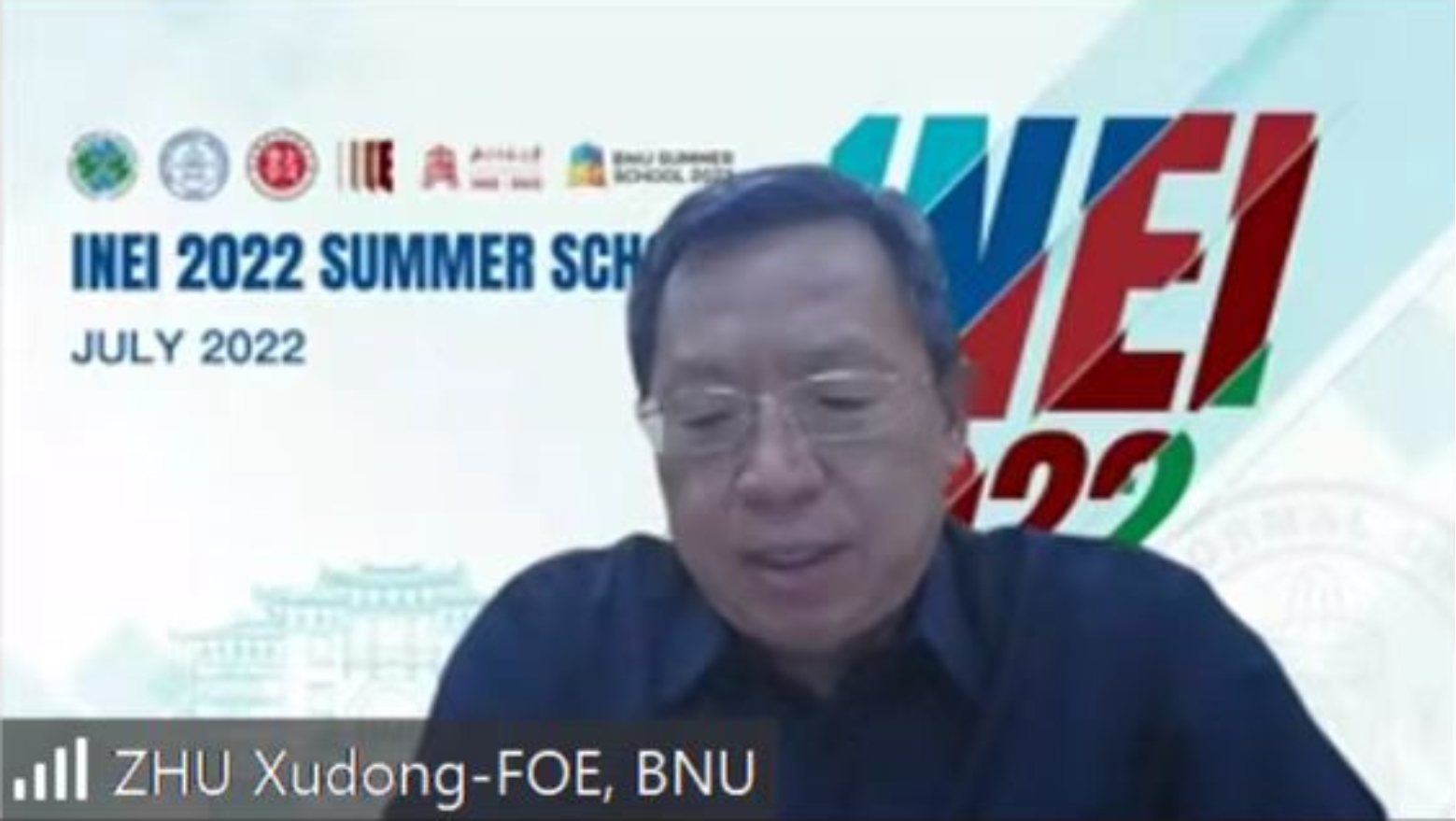
On behalf of the Institute of International and Comparative Education, Professor Liu Baocun extended his welcome to all students. He focused on the reasons for choosing "Global Governance of Education: Co-construction, Co-governance and Sharing" as the theme. He pointed out that we are in an era of globalization, and the destinies of human beings are closely linked. Whether we want to or not, we cannot escape the influence of globalization. The globalization of education has indeed achieved many positive results: It has promoted the mutual reference of educational policies and educational models, and promoted the improvement of the quality of global education. However, the globalization of education also faces unprecedented challenges: the prominence of educational inequality, the trend of anti-globalization, and the rise of populism. In this context, the Institute of International and Comparative Education, Beijing Normal University hosted the 5th INEI Summer School, mainly to reflect on what kind of world we want and what kind of global educational governance system we need in the era of globalization.
This is a complex theoretical and practical issue that requires the joint efforts of international organizations, nation-states and non-state actors. Thus, the organizer invited outstanding experts in the field of global educational governance to give keynote speeches and webinars. It is hoped that the insights and wisdom of the experts can help all students better think about the problems and challenges faced by global educational governance, and jointly discuss how to build a more equitable and shared global educational governance system.
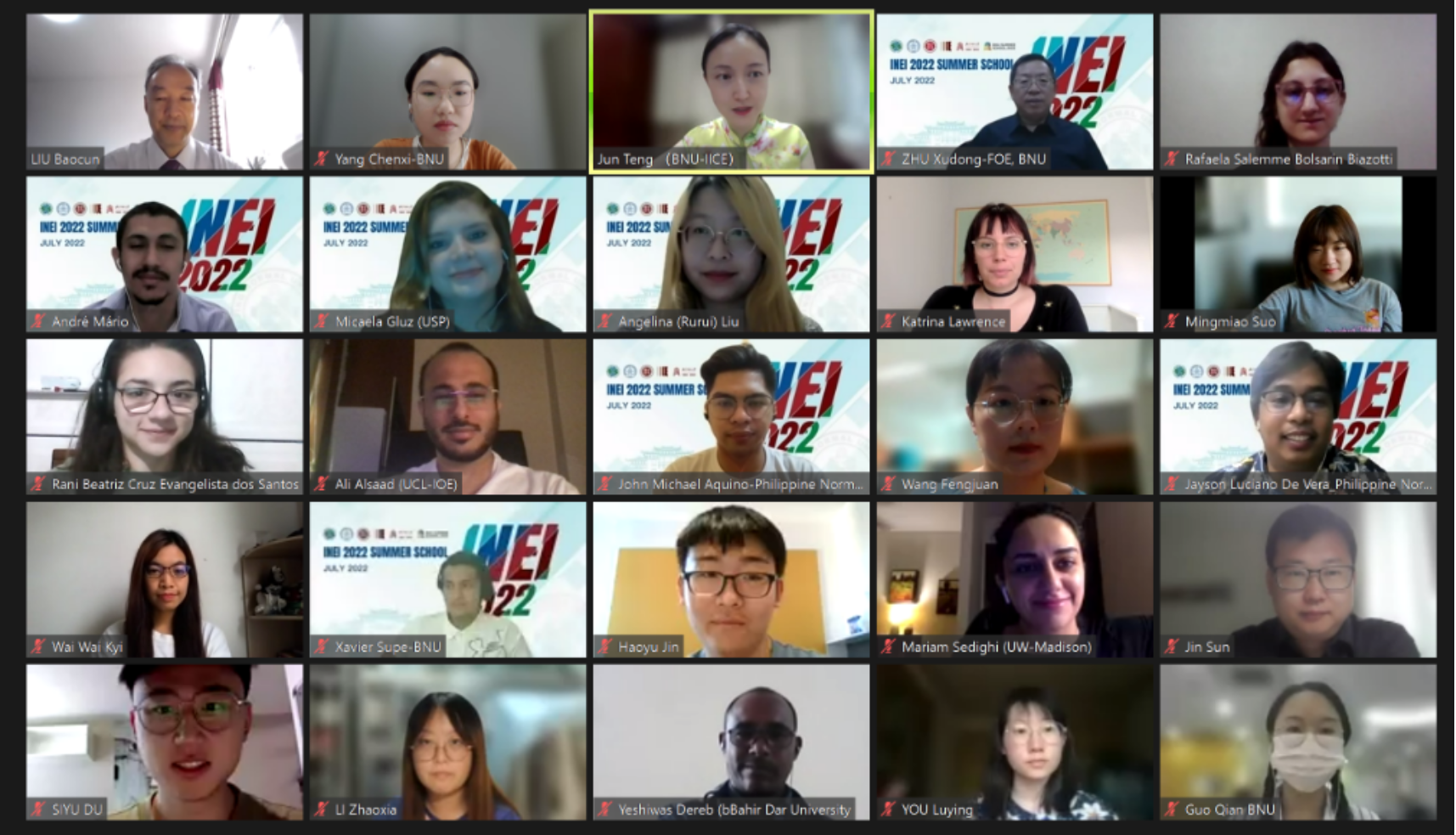
After the opening ceremony, the summer school program officially began. During the three-day summer school course, the Institute of International and Comparative Education invited 11 experts to carry out 2 lectures and 3 webinars on the connotation, principles, mechanisms of global educational governance, and the roles and actions of different actors.
On July 11, IICE Professor Sun Jin gave a lecture titled "What is Global Educational Governance"; IICE Professor Teng Jun presided over a webinar titled "The Role and Action of International Organizations in Global educational governance", and invited Dr. Zhao Yuchi, Deputy Director of the UNESCO International Center for Rural Education Research and Training , Associate Professor Zhu Xiaohu of Shanghai Normal University, and Professor Liu Ji of Shanxi Normal University participated in the discussion.
Professor Sun’s report revolved around the concept, subject, goal, object, mechanism and effect of global educational governance. In the part of the goal, he pointed out that the goals of global educational governance could be divided into internal goals and external goals. The internal goals of different governance bodies have their own priorities, and the external goals overlap. In the mechanism part, Professor SUN indicated that the global education mechanism includes both formal and informal mechanisms and the subjects of global educational governance differ in their ways and paths. In the section on the effects, he discussed the positive and negative effects of global educational governance, the effects on the objects of governance, the effects on the subjects of governance, the effects on the field of practice, and the effects on the theoretical aspects.
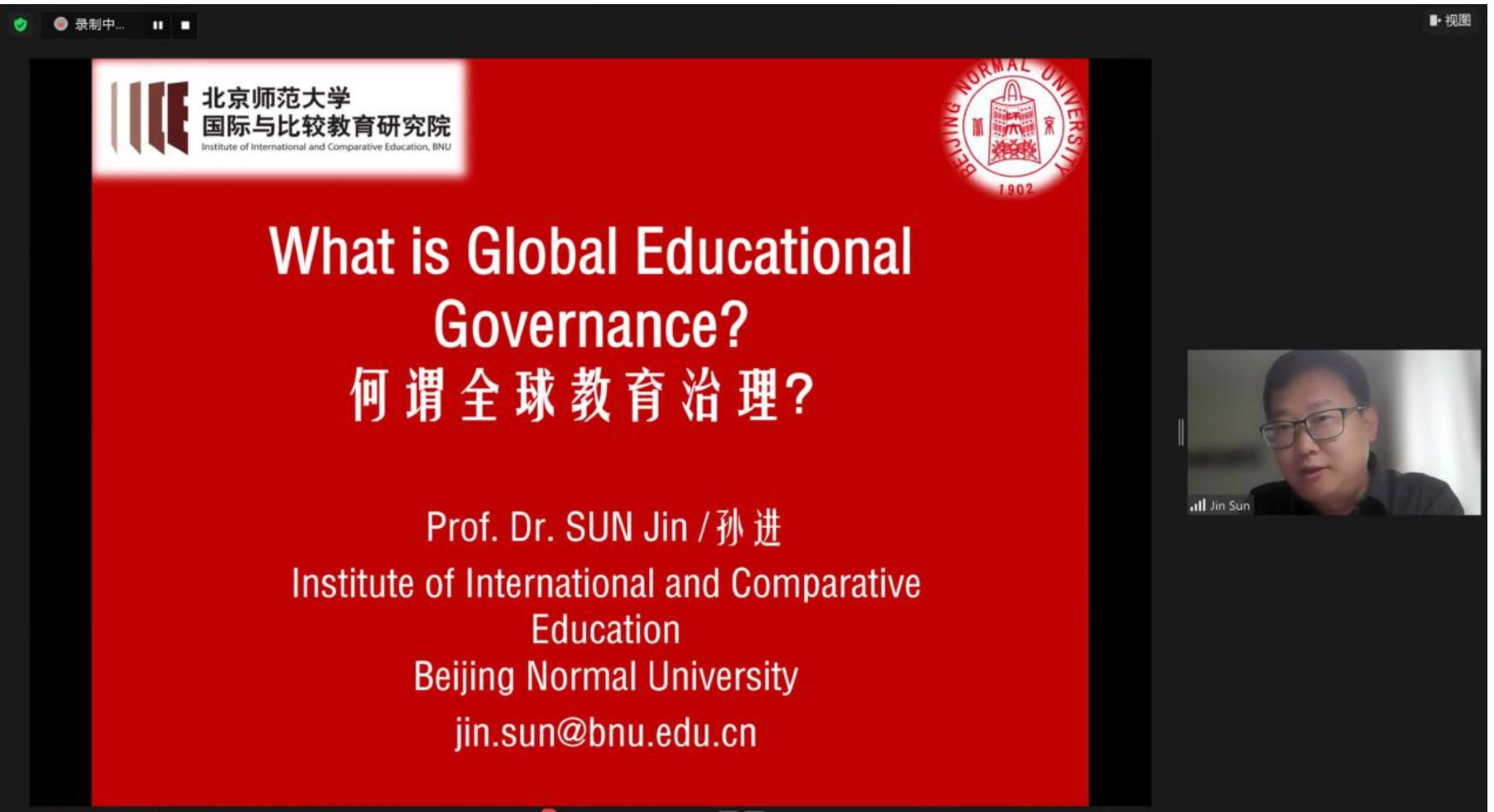
The webinar invited three guests with experience in international organizations to share with the participants how different international organizations participate in global educational governance as actors. Based on their own work experience, the guests shared what actions their organizations have taken, and what their respective advantages are. At the same time, they had an in-depth discussion on the relationship between competition and cooperation among international organizations, the future choice of international organizations under the multilateralism crisis brought by the COVID-19, and the suggestions for international organizations to improve the global educational governance system.
At 2:00 p.m. on July 12, the second webinar themed "The Roles and Actions of Non-State Actors in Global Governance of Education" was held under the auspices of IICE Mr. Ding Ruichang. In this webinar, Professor Kan Yue, Director of the UNESCO Research Center of Zhejiang University, Professor Peng Jingci, President of Beijing Haijia International Bilingual School, and IICE Assistant Professor Xiang Xin had a wonderful exchange and discussion. They first shared their own stories about the important roles played by different types of NGOs in the practice of global educational governance, then expressed their views on the issue of "The Advantages and Challenges Faced by Non-state Actors in Global Educational Governance". Finally, they discussed how to improve the capacity of NGOs in China so that China can play a more active and effective role in global governance of education.
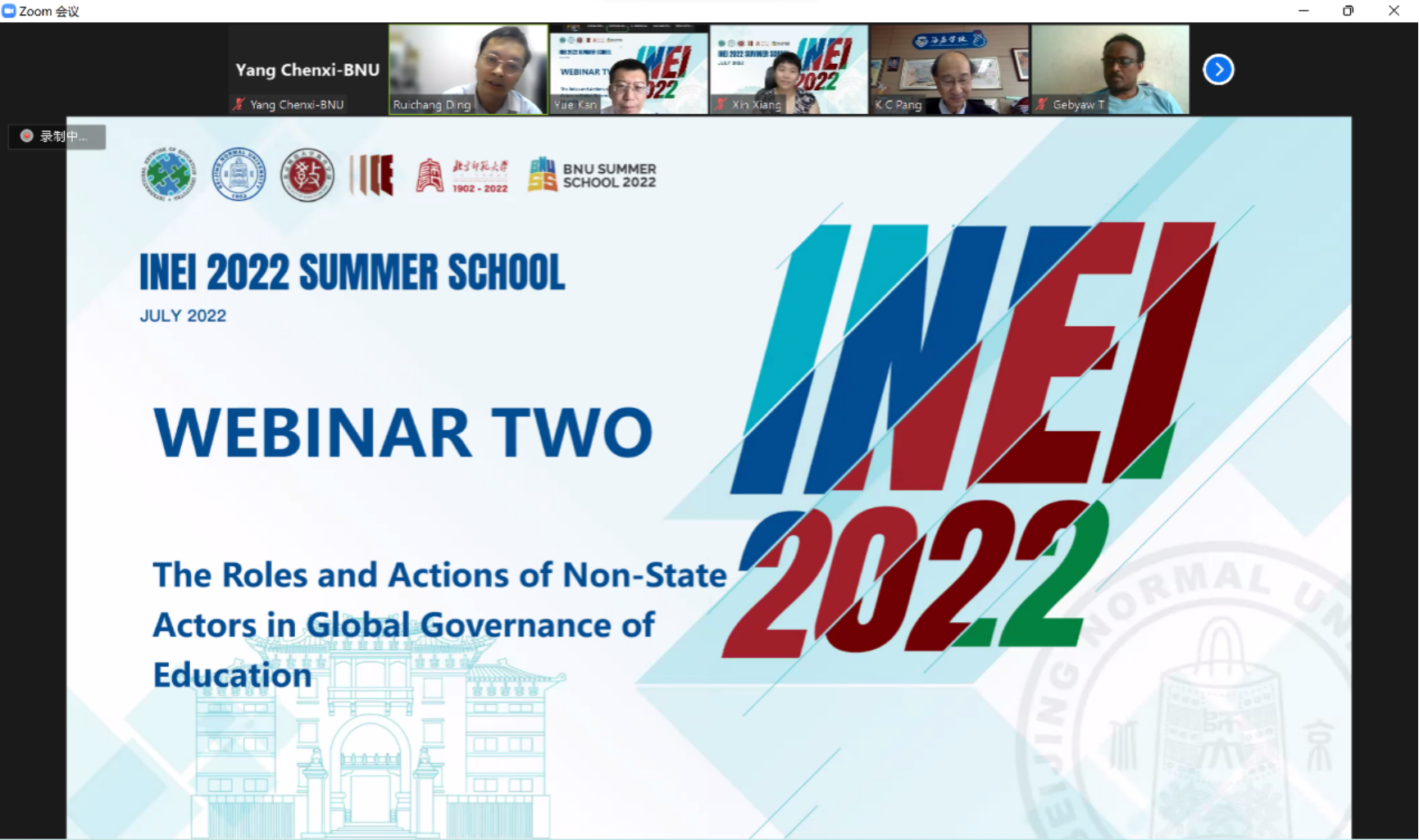
Prof. Kan Yue started from the background, definition, participants and mechanisms of global educational governance, and discussed the interaction between Zhejiang University and UNESCO in global educational governance from his own experience. He believed that non-state actors have full flexibility and can perform specific functions for different groups of people in different regions, but they also face challenges such as limited resources and lack of funds. In addition, Professor Kan Yue pointed out that China need to establish a better policy environment to promote the development of NGOs and make them play a more effective role in global educational governance.
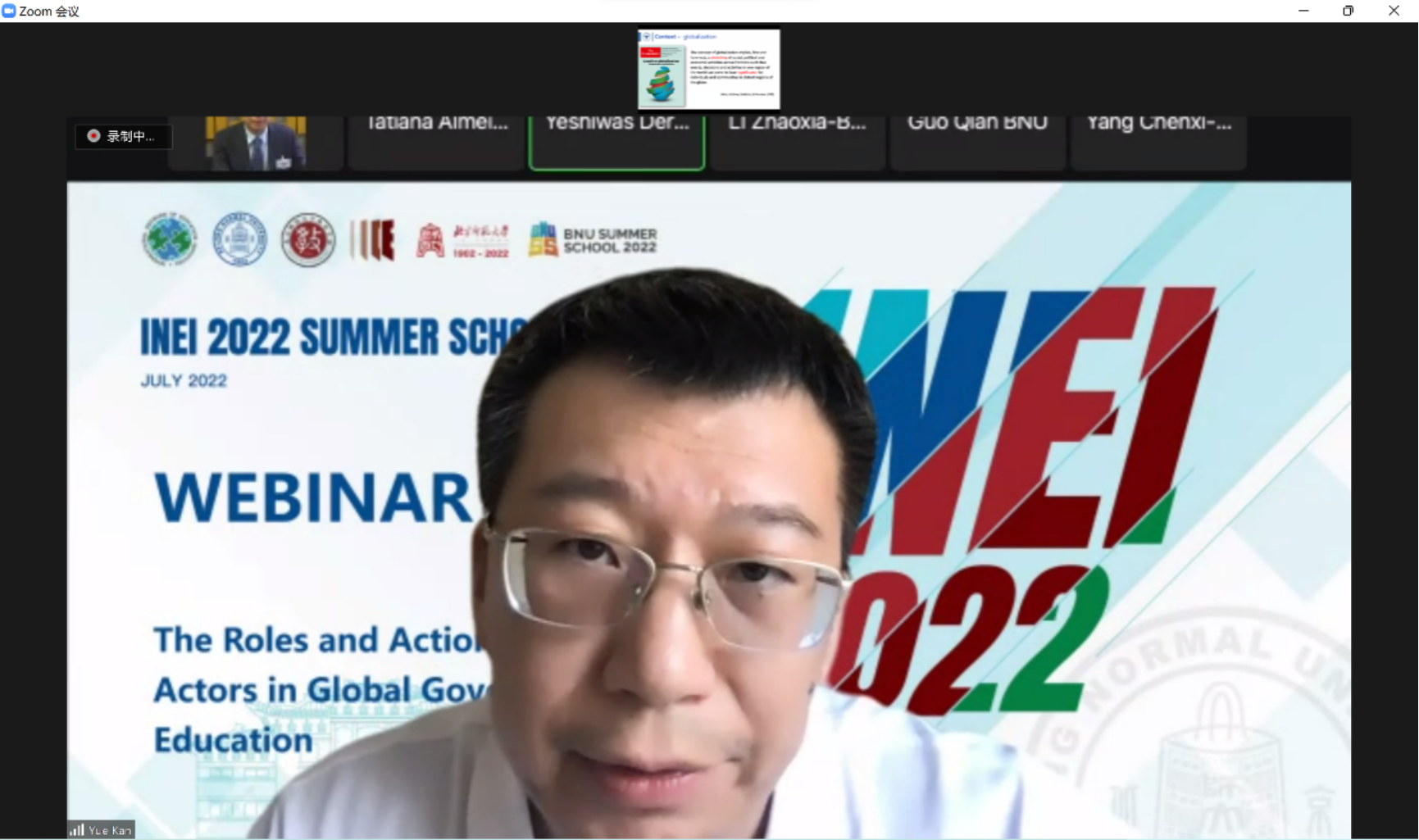
Dr. Peng shared stories of the participation of non-state actors in global educational governance in three different subjects: international schools, NGOs and universities. Taking NGOs as an example, he pointed out that they play a role in expanding advocacy in global educational governance. Dr. Peng believed that better promoting the participation of Chinese NGOs in global educational governance, giving NGOs the opportunity to obtain more funds to carry out their activities, and providing more attractive salaries for their staff are all important means.
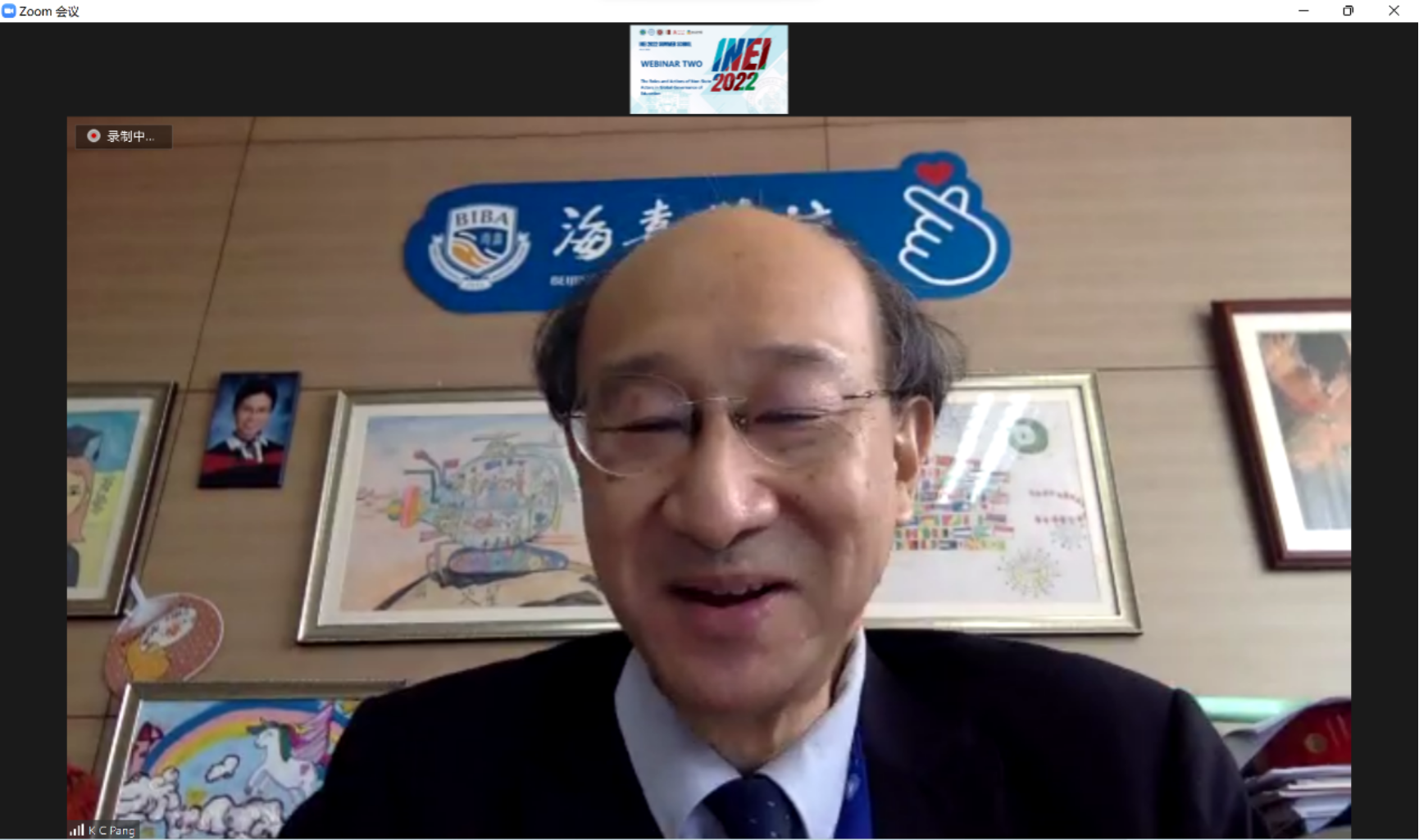
Dr. Xiang shared the story of her co-founder establishing the "CLOVER" to provide a communication platform for the migrant children and teenagers in local high schools in Guangzhou, and to participate in the governance of education of the migrant children. From the perspective of stakeholders, taking the story of the "CLOVER" as an example, Dr. Xiang pointed out that non-state actors can provide specific help to those who have not received enough attention from the official education system, such as migrant children. In addition, Dr. Xiang also pointed out that giving more voice and development space to NGOs is an important aspect of strengthening the ability of Chinese NGOs to participate in global educational governance.
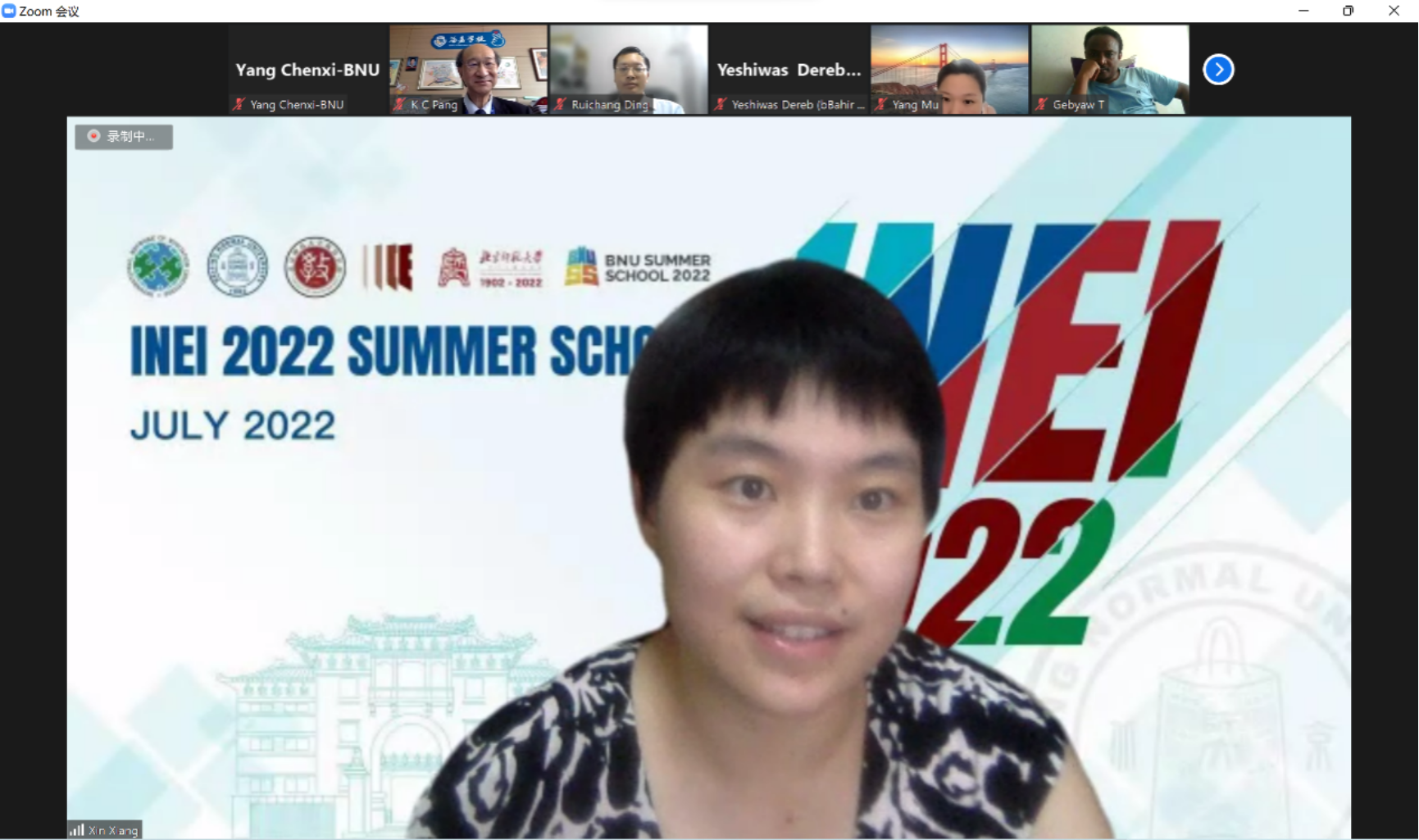
At 7:30 p.m. on July 12, the third webinar was held under the auspices of Professor Liu Baocun, Dean of IICE. Focusing on the theme of "The Roles and Actions of Nation States in Global Governance of Education", the webinar invited Prof. Cai Yuzhuo, Center for Higher Education, School of Management and Business, Tampere University, Finland, and Aaron Benavot, School of Education, State University of New York at Albany, and Professor Shi Xiaoguang from Peking University School of Education shared their stories and insights. The three professors discussed "Why the nation states are the most important actor in global governance of education", "How the nation states promote the establishment of a global consensus on solving global educational problems while maintaining national educational sovereignty", "How should nation states promote their own educational development by participating in global governance of education", "How developing countries represented by China should participate in global governance", and other issues also have been discussed and shared wonderfully.
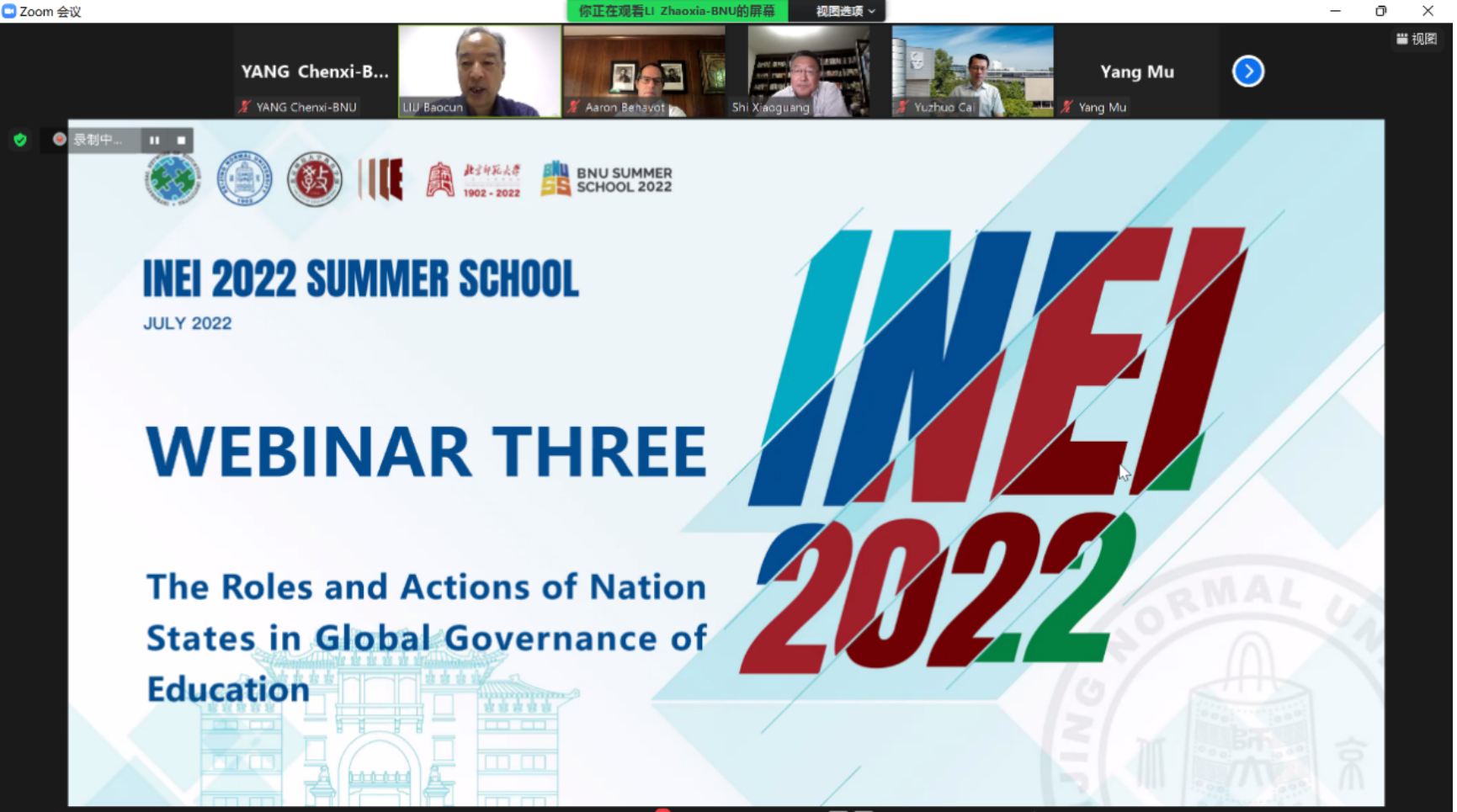
From the perspective of historical transformation, Professor Benavot expounded the reasons, importance, influence and challenges of independent nation states' participation in global educational governance. He pointed out that the increasing jurisdiction of independent nation states over all aspects of society, especially in the field of education, the establishment of a mass education system, and the establishment of rules and authorization in the field of education have all contributed to their becoming the most important actors in global educational governance.
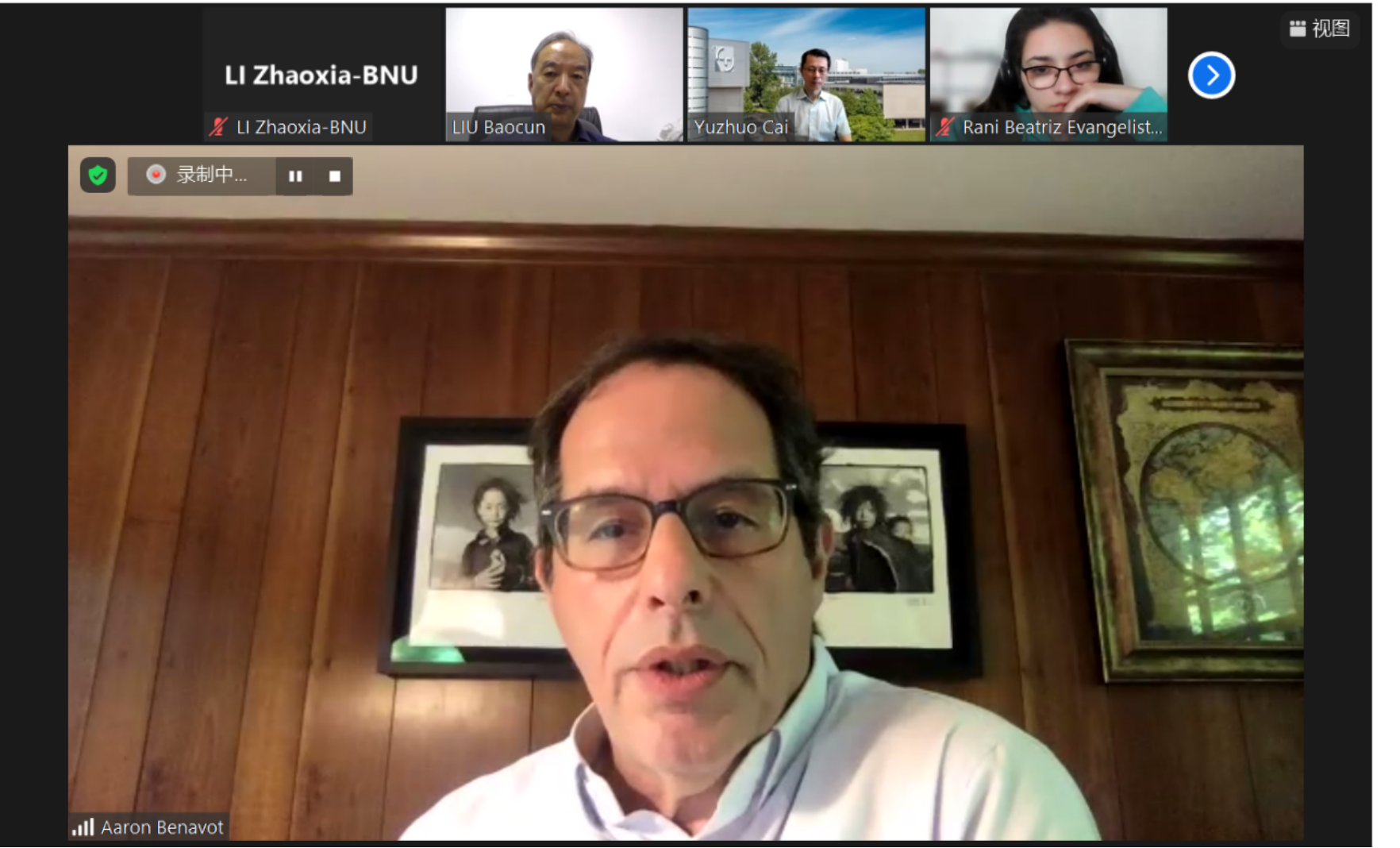
Based on his educational theory and practice in China and Finland, Professor Cai Yuzhuo discussed from the perspective of institutional theory, and summarized the reasons why the nation states are the core of the organizational field of global educational governance from three aspects: A global educational agenda developed by international organizations and driven by global social movements is expected to be implemented by nation states; intergovernmental organizations composed of representatives of different nation states; nation states can also influence the global agenda through their best practices in power and education.
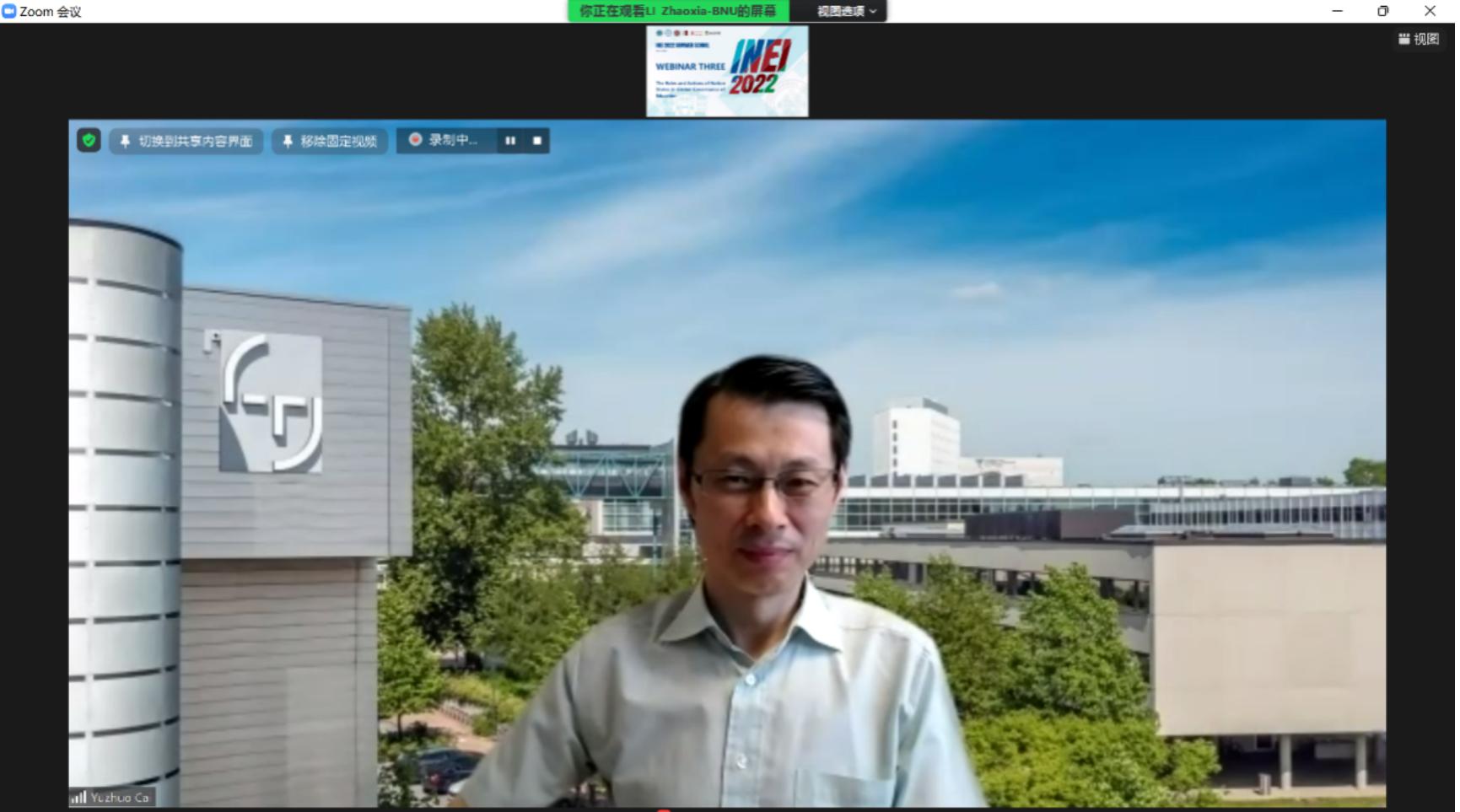
Professor Shi Xiaoguang focused on China's experience in participating in global educational governance in the past decade. He pointed out that in recent years, China has become an active promoter of global educational governance, committed to the implementation of international education that can promote common understanding and exchanges. By participating in the whole process of formulating the global educational agenda, sharing Chinese experience, contributing Chinese wisdom and Chinese solutions as a member of the United Nations, actively responding to international initiatives, disseminating and implementing the educational concepts advocated by international institutions, and building multiple educational platforms to promote global educational exchanges and cooperations, China has shown its characteristics and style in the practice of global educational governance.
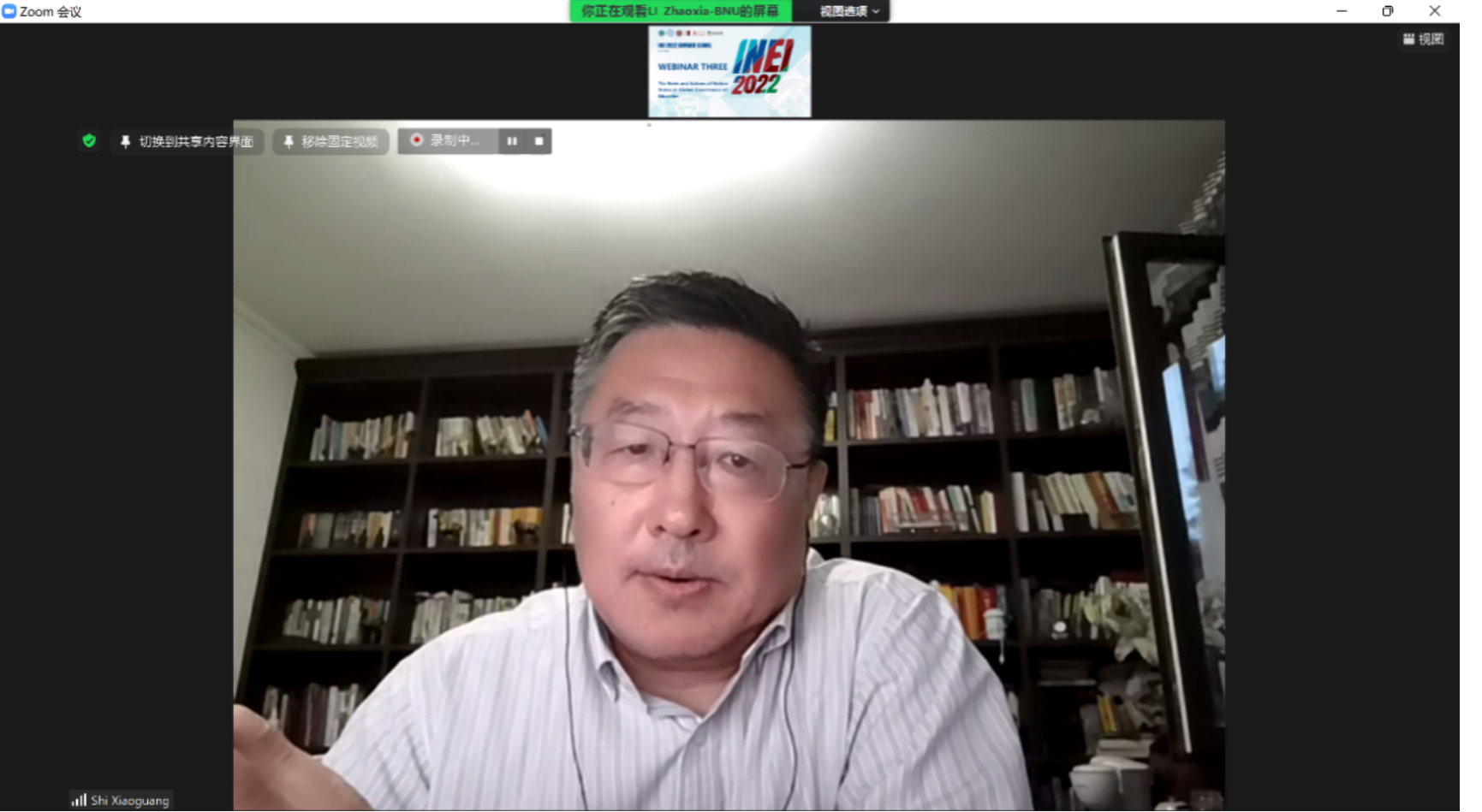
On July 13, Professor Teng Jun, Deputy Dean of IICE, gave a lecture on "A New Social Contract for Education and China's Possible Contributions". She pointed out that in the face of the crisis of multilateralism, the intensification of social conflicts, and the exacerbation of global inequality by the epidemic, UNESCO released the report "Reimagining Our Futures Together: A New Social Contract for Education" in 2021. She proposed that this humanistic philosophy based on individual rationality may also become a theoretical bottleneck in today's global educational governance to some extent. Faced with this problem, the humanistic spirit based on relational rationality in the Chinese cultural tradition has put forward the concept of "relational capability " for building a real "community with a shared future for mankind". She introduced it and further analyzed China's philosophy of relational rationality may contribute to future education.
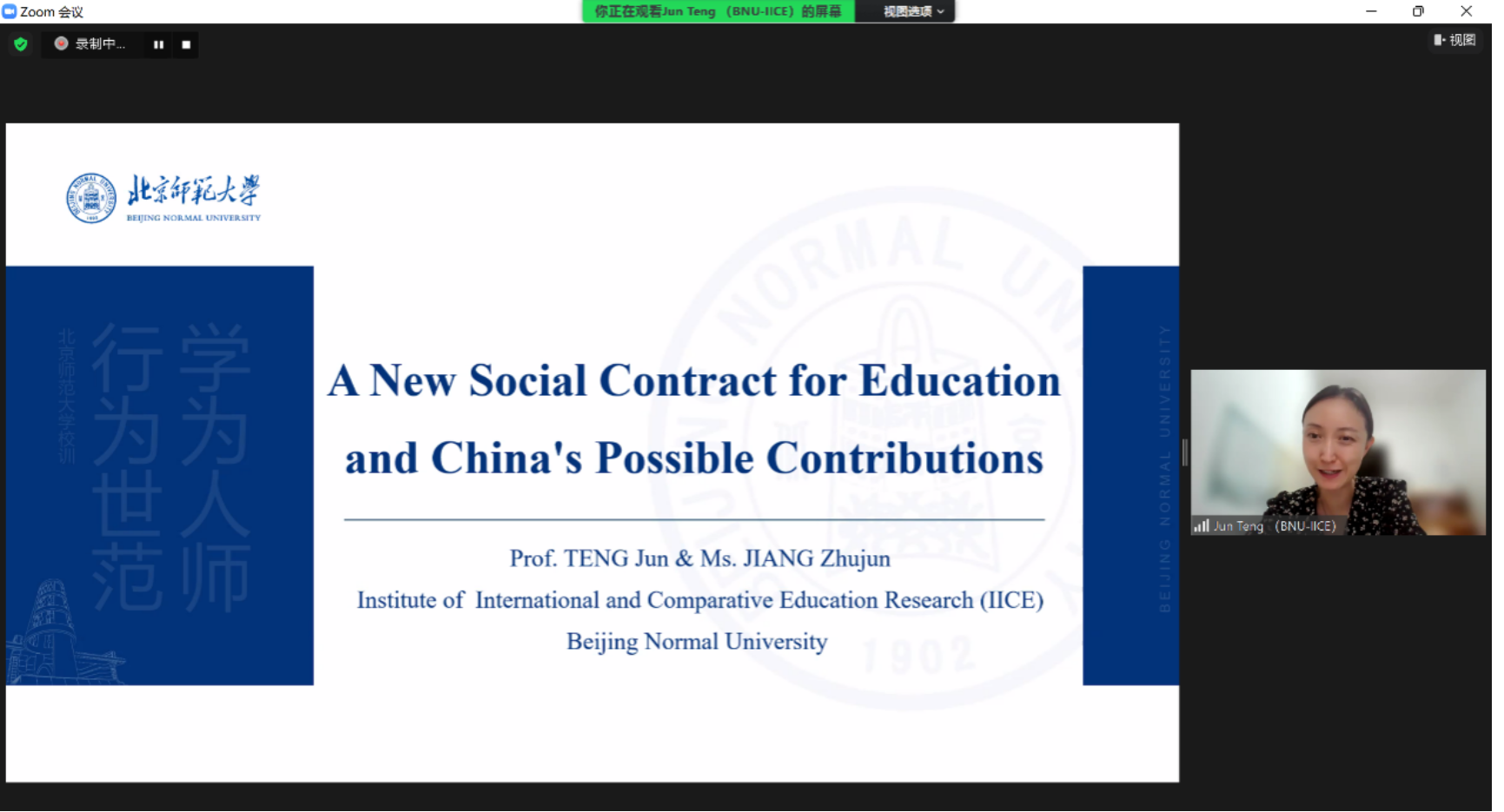
At the closing ceremony of the summer school, Professor Gao Yimin, Deputy Dean of the Institute of International and Comparative Education, summarized the three-day lectures and webinars, and re-emphasized the importance of global educational governance, and expressed the beautiful vision of teachers and students from different countries working together to create a better education in the context of globalization.
